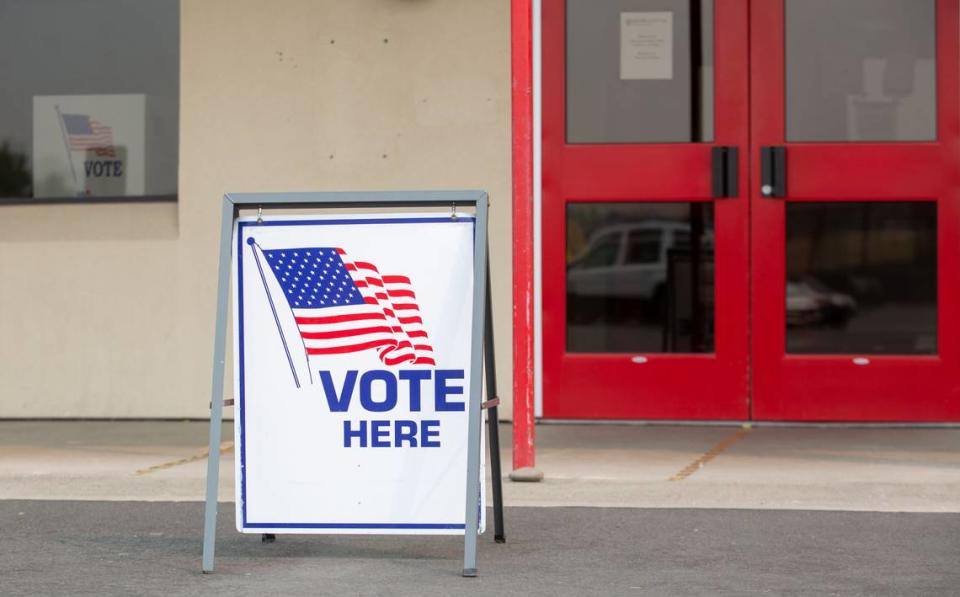Political incivility is at a fever pitch. We don’t have to let it ruin friendships | Editorial
As we look back on the July 4th holiday, there’s no better time to reflect for a moment on the dire state of politics in America. With a presidential election this year that seems to get more petty and angry by the day, it’s easy to forget that nearly 250 years ago, the Founders put aside their differences for the common cause of freedom.
Washington Lt. Gov. Denny Heck has had a front-row seat to politics for decades, as a state representative, a U.S. representative and now the state’s No. 2. He’s seen politics at its best and at its worst.
The current divisive environment that permeates all levels of government assuredly counts among the worst, and Heck wants to do something about it.
“It’s bad. Eighty-nine percent of Washingtonians are somewhat or very concerned about the future of democracy,” Heck recently told the editorial board. “But I actually find more telling and more disturbing another number, 24%. Twenty-four percent of Washingtonians report that they have stopped talking altogether to either a friend or family member because of politics.”
Anyone who follows politics knows what Heck is talking about. Americans on the left don’t like Americans on the right, and vice versa. Compromise, civil discourse and respectful disagreements have nearly disappeared.
Heck and his civility allies refuse to accept that this is the best Americans can do. If they succeed, it will benefit all of us.
Incivility has plagued American politics almost from the start. In 1804, Vice President Aaron Burr shot former Treasury Secretary Alexander Hamilton in a duel. Hamilton died the next day.
In 1856, Democratic U.S. Rep. Preston Brooks beat Republican Sen. Charles Sumner in the U.S. Capitol with a cane, nearly killing him. Soon after, the Civil War almost tore the country in half permanently.
The U.S. Senate’s official history of the Brooks-Sumner caning notes that at the time the nation was “suffering from a breakdown of reasoned discourse.” The same is true today. Republicans and Democrats talk past each other. They hurl invective and insults. They demonize their opponents and caution loyal supporters that if the other side wins, democracy will die.
Meanwhile, media personalities and social media drive people further away from a sensible middle.
They deal in half-truths and misinformation, fueling partisan discord for their ideological, political and financial ends.
That’s why Heck’s and his allies’ work is so important. Under the umbrella of the Project for Civic Health, they are bringing together people with diverse views from across the state, especially bridging the urban-rural divide. When Washingtonians have face-to-face conversations, almost all of them are civil and respectful. They might disagree, but they do it agreeably.
Heck isn’t alone in this work. Other Washington-based and national organizations also are trying to restore civility. Notably, the Tri-City Civility Caucus is working locally to dial down the political temperature.
Heck acknowledges that some people on the extremes aren’t interested in civility.
“We’re really trying to figure out how to build this from the ground up and the middle out. And I’m not sure that starting with people who don’t believe in respectful discourse is the way we get there,” he said. “There are some people that you will never reach, and I think there are a lot of those. We certainly have more than we used to, unfortunately.”
One lieutenant governor and a handful of like-minded groups aren’t going to solve America’s political dysfunction, but they can provide proof of concept that decency and civility aren’t hopelessly lost.
Success will grow from one person who shows up at a school board meeting not to berate officials over the ginned up issue du jour but to respectfully share ideas about how to make things better together.
At your next summer barbecue or picnic, when a friend or family member says something with which you vehemently disagree, don’t cut them out of your life. Listen respectfully and then share your view just as respectfully. Have a civil conversation and remain friends.
Real change starts with each of us.




